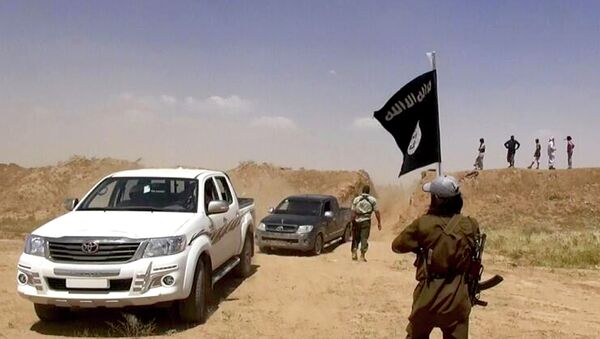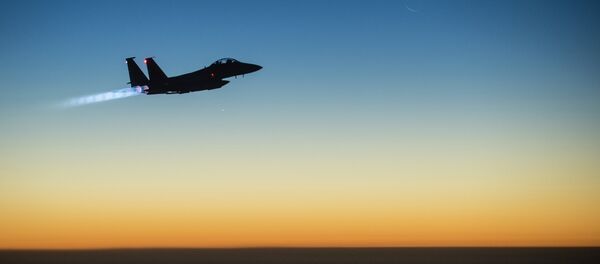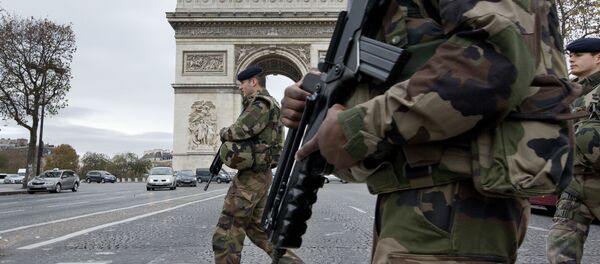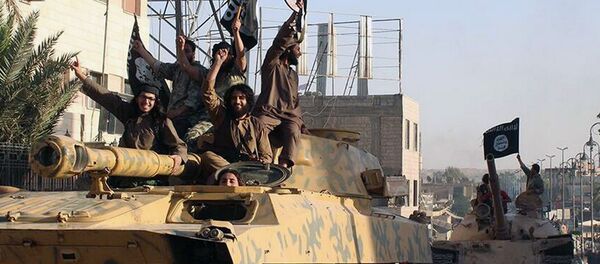War is a brutal and expensive business that requires hundreds of millions of dollars; the existence of the notorious Islamic State is dependent on a perpetual money flow from different sources.
"Follow the money back, cut it off, and you strike a blow much more devastating than an airstrike," Peter Van Buren, an author and a 24-year veteran of the State Department, recommends, posing a question:
"Why isn't the United States going after Islamic State's funding sources as a way of lessening or eliminating their strength at making war?"
In a leaked 2009 action request cable Deputy Assistant Secretary Douglas C. Hengel pointed out the necessity to cut off "terrorist fundraising in the Gulf by al-Qaeda, the Taliban, LeT, and other Af/Pak-based violent extremist groups, all of which undermine the security of the entire international community."
"Direct links are difficult to prove, particularly if the United States chooses not to prove them," Van Buren noted.
To complicate matters further, the money usually comes from private "donors," not directly from national treasures, and could be routed through "legitimate charitable organizations" or "front companies."
However, at the G20 in Turkey Russian President Putin has disclosed what has long remained swept under the carpet: Putin said that he had shared information on ISIL sponsors with the other G20 members. The list contains 40 countries, including a number of G20 states.
"Putin's list of funders has not been made public. The G20, however, include Argentina, Australia, Brazil, Canada, China, France, Germany, India, Indonesia, Italy, Japan, Mexico, Russia, Saudi Arabia, South Africa, South Korea, Turkey, the United Kingdom, the United States of America, and the European Union," Van Buren underscored.
"Conservative estimates are that Islamic State takes in one to two million dollars a day from oil sales; some see the number as high as four million a day," the US author remarked.
However this is only a part of the story.
In June 2014 French intellectual and political analyst Thierry Meyssan posed a question, how could al-Qaeda's affiliate al-Nusra Front and ISIL sell oil on the international market which is closely monitored by Washington.
"A question arises to which the Atlanticist media and the Gulf still have no answer: how can these terrorists sell oil on the international market so monitored by Washington? In March [2014], the Libyan Benghazi separatists had failed to sell the oil that they had seized," Meyssan wrote in his piece for Voltairenet.org.
Needless to say, it is no easy task to bring the stolen oil to the market.
"Oil must be taken from the ground using heavy equipment, possibly refined, stored, loaded into trucks or pipelines, moved somewhere and then sold into the worldwide market," the former US official elaborated.
According to Van Buren, Turkish officials could have been possibly behind this secret oil trade. However, there is also the possibility that private Iraqi and Turkish buyers traveled to Syria and transported the stolen crude on their trucks.
Still, it is becoming clear that Western powers involved in the year-long anti-ISIL campaign have chosen the wrong strategy.
In his another piece Van Buren addresses the Western establishment, saying: "Leave the Middle East alone. Stop creating more failed states. Stop throwing away our freedoms at home on falsehoods. Stop disenfranchising the Muslims who live with us. Understand the war, such as it is, is against a set of ideas — religious, anti-western, anti-imperialist — and you cannot bomb an idea."






